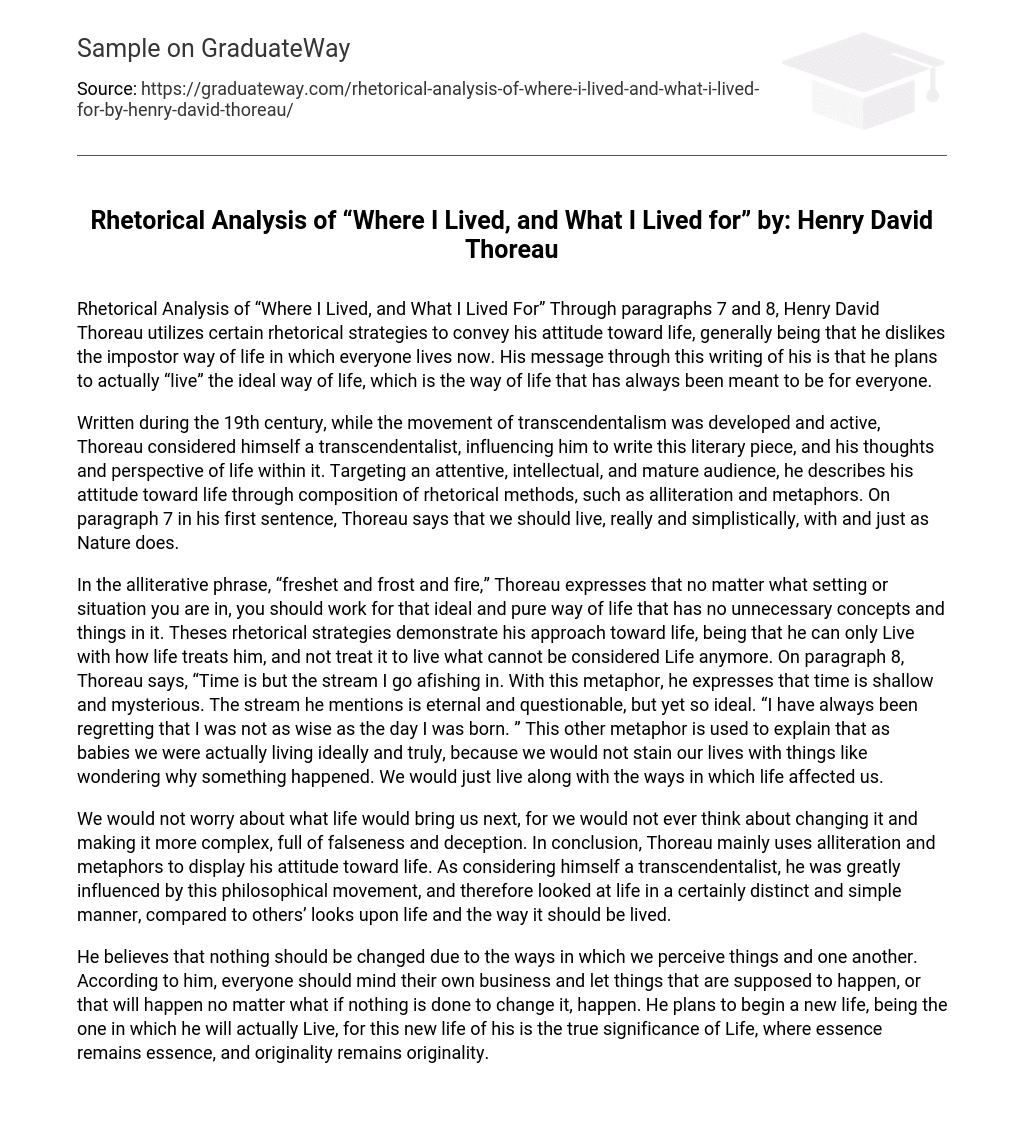Rhetorical Analysis of “Where I Lived, and What I Lived For” Through paragraphs 7 and 8, Henry David Thoreau utilizes certain rhetorical strategies to convey his attitude toward life, generally being that he dislikes the impostor way of life in which everyone lives now. His message through this writing of his is that he plans to actually “live” the ideal way of life, which is the way of life that has always been meant to be for everyone.
Written during the 19th century, while the movement of transcendentalism was developed and active, Thoreau considered himself a transcendentalist, influencing him to write this literary piece, and his thoughts and perspective of life within it. Targeting an attentive, intellectual, and mature audience, he describes his attitude toward life through composition of rhetorical methods, such as alliteration and metaphors. On paragraph 7 in his first sentence, Thoreau says that we should live, really and simplistically, with and just as Nature does.
In the alliterative phrase, “freshet and frost and fire,” Thoreau expresses that no matter what setting or situation you are in, you should work for that ideal and pure way of life that has no unnecessary concepts and things in it. Theses rhetorical strategies demonstrate his approach toward life, being that he can only Live with how life treats him, and not treat it to live what cannot be considered Life anymore. On paragraph 8, Thoreau says, “Time is but the stream I go afishing in. With this metaphor, he expresses that time is shallow and mysterious. The stream he mentions is eternal and questionable, but yet so ideal. “I have always been regretting that I was not as wise as the day I was born. ” This other metaphor is used to explain that as babies we were actually living ideally and truly, because we would not stain our lives with things like wondering why something happened. We would just live along with the ways in which life affected us.
We would not worry about what life would bring us next, for we would not ever think about changing it and making it more complex, full of falseness and deception. In conclusion, Thoreau mainly uses alliteration and metaphors to display his attitude toward life. As considering himself a transcendentalist, he was greatly influenced by this philosophical movement, and therefore looked at life in a certainly distinct and simple manner, compared to others’ looks upon life and the way it should be lived.
He believes that nothing should be changed due to the ways in which we perceive things and one another. According to him, everyone should mind their own business and let things that are supposed to happen, or that will happen no matter what if nothing is done to change it, happen. He plans to begin a new life, being the one in which he will actually Live, for this new life of his is the true significance of Life, where essence remains essence, and originality remains originality.





